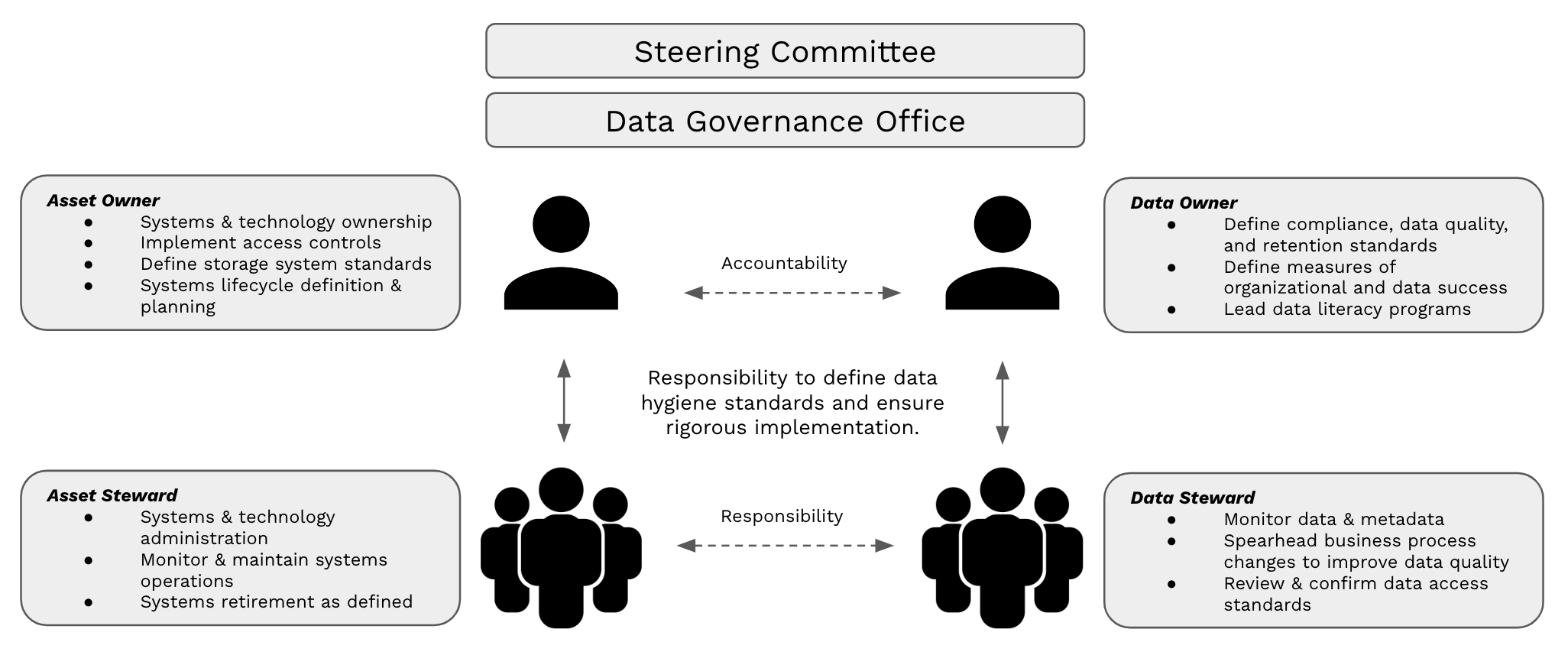Identifying and Engaging Data Stewards

The data steward is the front line in effective data governance who’s aligned with organizational priorities. They’re the expert in one or more data sets, and the supporting business processes that produce and consume the identified data. They operate as the subject matter expert for others in the organization about the value of the data, the quality of the data, and areas for improvement in quality and consumption of the data. The data steward is the first line of engagement for approvals about data access, changes to associated business processes, and the systems that store and process the data.

In organizations without formalized data governance programs the data stewards are often individuals with a passion for the organization and knowledge of the data acting in the role without formal definition or acknowledgement. The role of organizational leaders and the data governance program lead is to formally define the data steward role, provide clarity on expectations, and ensure the data stewards have the necessary skills and investment to be successful. This definition ensures that all data stewards are seen as having the same authority and responsibility, and business partners have an understanding of the standard operating model for data stewards.
The most effective data stewards are the ones that have gravitated to the role naturally due to their passion and knowledge. The formalization of the role enables others to volunteer for the role and ensure a full understanding of its expectations. The most successful data governance programs will leverage this passion and empower the data stewards, ensuring management doesn’t resort to conscripting individuals into the role.
Many organizations will leverage members of the information technology teams as data stewards. This is often done because the technology teams have the most awareness of the data and supporting systems. While this is an effective short term stop gap, it is not recommended as a standard operating model. The most effective data stewards sit in the business units with direct line relationships to business leaders. This enables them to have strong visibility into organizational processes and drive change through process and data quality improvement.
The most successful data stewards operate in federated data governance models. They have strong executive leadership that sets direction and priorities, while having freedom to execute in a way that is more impactful to their business unit. The data stewards become the linchpin between centralized data governance policies, tooling and literacy programs and the individual needs of the business units. They’re successful because they’re empowered to balance the rollout of new organizational capabilities with timing for when their business unit will adopt them.
Data stewards provide a vital function for our data governance programs. They provide the knowledge and passion to execute on policy enforcement while constantly improving our data quality and business processes. By leveraging an all volunteer group of data stewards we ensure they have the subject matter expertise to be effective and a personal desire to improve how their organization uses and protects data.
As we continue to explore data governance programs, we’ll explore how to find, manage, and leverage our metadata effectively. Proper management of our metadata enables measurement and automation of our data governance policies. Make sure to sign up for updates so you don’t miss the next post.
Share this
You May Also Like
These Related Stories

Building Organizational Models for Better Data Governance

No Comments Yet
Let us know what you think